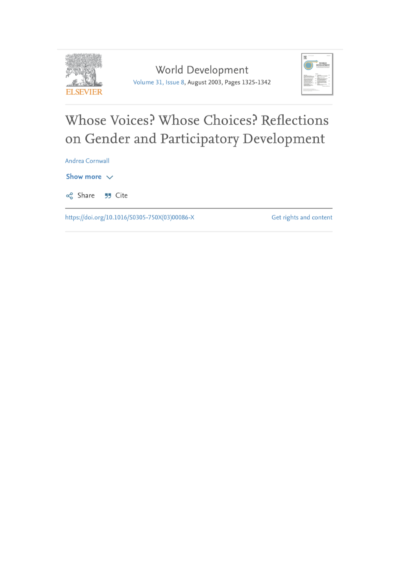
- Report year:2003
- Report author: Andrea Cornwall
- Organisation: World Development
Efforts to promote participation in projects, programs and policy consultation would appear to offer the prospect of giving everyone who has a stake a voice and a choice. But community-driven development, participatory planning and other fine-sounding initiatives that make claims of “full participation” and “empowerment” can turn out to be driven by particular gendered interests, leaving the least powerful without voice or much in the way of choice. Bringing a gender perspective to bear on the practice of participation in development may assist in identifying strategies for amplifying voice and access to decision making of those who tend to be marginalized or excluded by mainstream development initiatives.
